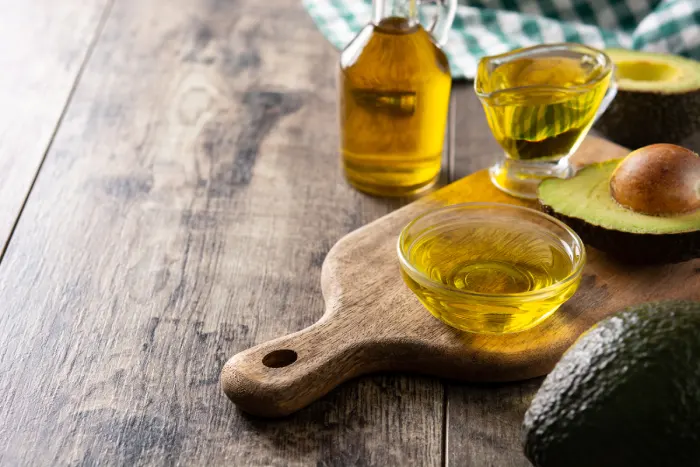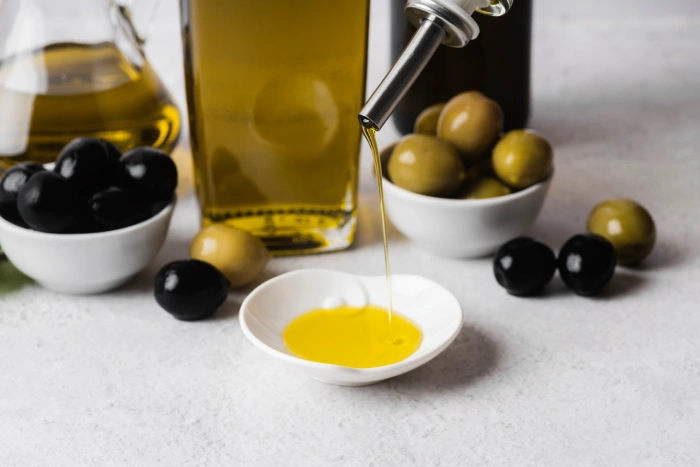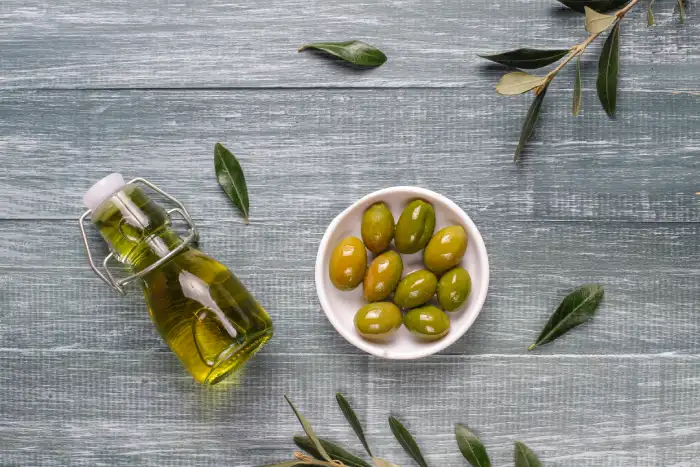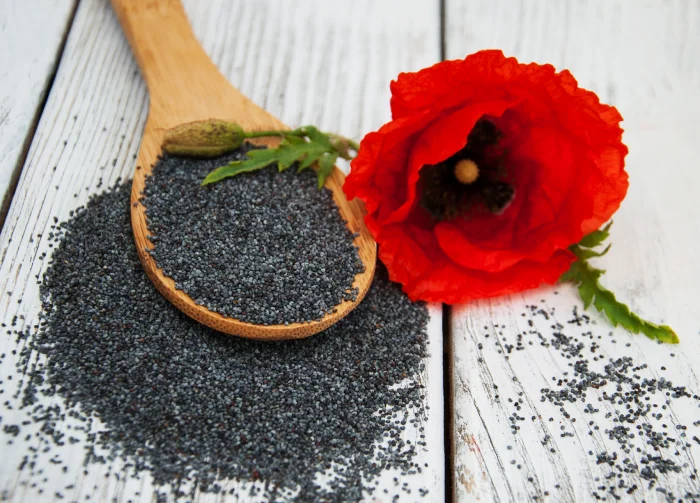Hey there, health enthusiasts! 👋 As your friendly neighborhood nutrition nerd (and someone who’s probably spent way too much time studying oils), I’m here to spill the tea – or should I say, pour the oil? – on the epic showdown between avocado oil vs olive oil. And trust me, this comparison is going to be juicier than a perfectly ripe Hass avocado!
The Oil Wars: Avocado Oil vs Olive Oil Face-Off
Let’s start with the million-dollar question: is avocado oil good for you? Spoiler alert: it’s not just good, it’s absolutely fantastic! But how does it stack up against the Mediterranean champion, olive oil? The battle between avocado oil vs olive oil has been heating up in recent years, with health-conscious consumers increasingly exploring alternatives to traditional cooking oils. As someone who’s spent countless hours in the kitchen experimenting with both, I can tell you that each of these liquid gold varieties brings something unique to the table.
The Birth of Liquid Gold: How These Oils Are Made
The journey from fruit to bottle is fascinating for both these oils. Olive oil’s story begins in ancient Mediterranean groves, where generations of farmers have carefully cultivated and harvested olives for their precious oil. The process involves crushing fresh olives into a paste, then separating the oil through various pressing methods. The first press yields the coveted extra virgin olive oil, known for its robust flavor and high nutritional value.
On the other side, avocado oil production is a relatively modern innovation, though it’s quickly gaining popularity. The process starts with perfectly ripe Hass avocados – yes, the same ones you’d use for your morning avocado toast! The flesh is separated from the avocado pit and skin, then malaxed (fancy word for ‘mashed and stirred’) at specific temperatures to start separating the oil. It’s fascinating to think that the same fruit we use to make avocado crema or avocado spread can produce such versatile oil.
The Science of Smoke Points: Why Temperature Matters
The avocado oil smoke point is truly remarkable, reaching up to 520°F (271°C), which sets it apart in the cooking oil hierarchy. This high smoke point means you can use it for practically any cooking method without worrying about the oil breaking down and producing harmful compounds. Whether you’re searing a steak, making avocado oil chips, or trying your hand at high-temperature stir-frying, avocado oil maintains its structural integrity and nutritional benefits.
Olive oil, while incredible for many uses, has a more modest smoke point of around 375°F (191°C). This doesn’t make it inferior – rather, it excels in different applications. Think of it as having two specialized tools in your kitchen arsenal, each perfect for specific tasks. The smoke point difference becomes particularly important when we consider various cooking methods and their temperature requirements.

Understanding Modern Oil Processing and Quality Standards
The Evolution of Oil Extraction Methods
The technology behind oil extraction has come a long way, particularly for avocado oil. Modern facilities use centrifugal force to separate the oil from the fruit’s flesh, ensuring minimal heat exposure and maximum nutrient retention. This process is crucial for producing the best avocado oil possible. When you’re choosing avocado oil vs olive oil, understanding these production methods can help you make an informed decision about quality.
The chosen avocado oil by many professionals often comes from producers who prioritize cold-pressing methods, similar to those used in premium olive oil production. This attention to processing temperature helps preserve the delicate compounds that make these oils so beneficial for our health.
Quality Markers and How to Identify Them
When searching for the best avocado oil, there are several key indicators of quality. A high-quality avocado oil should have a beautiful green hue, reminiscent of fresh avocados. This color comes from high chlorophyll content and indicates minimal processing. The oil should also have a clean, grassy aroma with subtle buttery notes – quite different from the peppery kick you might find in fresh olive oil.
The industry has developed rigorous standards for both oils, though olive oil has had centuries more to establish its grading system. While terms like “extra virgin” are well-defined for olive oil, similar standards for avocado oil are still evolving, making it crucial to choose reputable brands and understand what makes a quality product.
The Health Benefits Extravaganza
Avocado Oil: The Modern Health Marvel
When people ask “is avocado oil healthy?” I can’t help but get excited about sharing its remarkable benefits. The oil is packed with oleic acid, the same heart-healthy monounsaturated fat found in olive oil, but with some unique additional perks. Recent studies have shown that the combination of avocado and oil might be particularly beneficial for joint pain relief, making it a favorite among athletes and active individuals.
The antioxidant content in avocado oil is particularly fascinating. These compounds work tirelessly in your body, fighting off free radicals and potentially reducing inflammation. What’s even more interesting is how these antioxidants remain stable even at higher cooking temperatures, unlike many other cooking oils that degrade when heated.
Olive Oil: The Time-Tested Champion
Olive oil’s health benefits are backed by thousands of years of use and decades of modern scientific research. The Mediterranean diet, which features olive oil as a prominent component, has been associated with lower rates of cardiovascular disease, better cognitive function, and increased longevity. The oil contains unique compounds called polyphenols, which contribute to its anti-inflammatory and antioxidant properties.
What’s particularly interesting about olive oil is its well-documented effect on heart health. Regular consumption has been linked to improved cholesterol profiles, better blood pressure regulation, and reduced risk of stroke. These benefits make it a powerful ally in maintaining cardiovascular health.
Culinary Applications: A Deep Dive
The Versatility of Avocado Oil in Modern Cuisine
The culinary world has embraced avocado oil with open arms, and it’s easy to see why. Its mild, buttery flavor makes it perfect for creating innovative dishes. In recent years, creative chefs have been using it in everything from avocado mayo to sophisticated avocado mousse desserts. The oil’s neutral taste allows the natural flavors of other ingredients to shine through while adding a subtle richness that’s hard to achieve with other oils.
When it comes to making avocado sushi, the oil can be used to add a subtle richness to the rice or as part of a spicy mayo drizzle. Innovative cooks are even incorporating it into avocado pudding recipes, creating dairy-free desserts that are both nutritious and indulgent. The possibilities seem endless, from creating the perfect avocado sauce for tacos to elevating a simple avocado sandwich to gourmet status.
Revolutionary Cooking Techniques
The high smoke point of avocado oil has revolutionized healthy high-heat cooking. Chefs are now able to achieve the perfect sear on proteins without compromising the oil’s nutritional benefits. This has led to the development of new cooking techniques that weren’t possible with traditional oils. For instance, avocado oil spray has become a game-changer in air fryer cooking, providing a healthier alternative to traditional frying methods while maintaining that crucial crispy texture.
Global Culinary Traditions Meet Modern Innovation
The intersection of traditional cooking methods and modern culinary innovation has led to some exciting developments in how we use these oils. While olive oil remains a staple in Mediterranean cuisine, avocado oil is carving out its own niche in fusion cooking. Innovative chefs are creating avocado roll variations that combine traditional sushi techniques with modern flavor profiles, demonstrating the oil’s versatility in both classical and contemporary cooking.
Beauty and Wellness Applications
The Rising Star: Avocado Oil for Hair and Skin
The beauty industry has taken notice of avocado oil’s potential, particularly when it comes to hair care. Using avocado oil for hair has become increasingly popular, thanks to its ability to penetrate the hair shaft and provide deep moisturization. The oil’s molecular structure allows it to actually penetrate the hair cuticle, rather than just coating the surface like many other oils.
Beauty enthusiasts have started incorporating avocado oil into their daily routines, using it as a natural moisturizer, makeup remover, and even as a carrier oil for essential oil blends. The results speak for themselves – many users report softer, more manageable hair and glowing skin after regular use.

Sustainable Production and Environmental Impact
The Environmental Footprint of Oil Production
The environmental impact of both oils deserves careful consideration. While olive trees are known for their longevity and relatively low water requirements, avocado trees have different environmental needs. Growing avocado trees from seed has become increasingly popular among home gardeners, leading to greater awareness of the cultivation requirements for these fascinating plants.
It’s worth noting that commercial avocado farming can be water-intensive, particularly in regions where these trees aren’t native. However, innovative farming techniques and water management systems are being developed to make avocado oil production more sustainable. These include drought-resistant varieties and improved irrigation methods.
Preservation and Storage Innovation
The advancement in preservation techniques has led to exciting developments in how we store and maintain these oils. While traditional methods focused on dark glass bottles and cool storage, new innovations in packaging and freeze drying avocado slices have extended the shelf life of both the fruit and its oil. These developments have made it possible to enjoy the benefits of both oils while minimizing waste.
Special Considerations and Safety
Pet Safety and Avocado Consumption
A common question among pet owners is “can dogs eat avocado?” or “can dogs have avocado?” The answer requires some nuance. While the flesh of avocados can be safe for dogs in small amounts, it’s crucial to keep them away from the avocado pit and skin. The oil itself, when used in moderation, can actually provide some benefits for pets, though it’s always wise to consult with a veterinarian before making any dietary changes for your furry friends.
Seasonal Considerations and Availability
The availability of quality avocados and olives varies throughout the year, affecting oil production and prices. While olive oil production follows ancient seasonal patterns, avocado oil production has adapted to modern agricultural techniques that help ensure year-round availability. Some regions even host an annual avocado festival to celebrate the harvest season, showcasing everything from traditional uses to innovative applications of this versatile fruit and its oil.
Market Trends and Consumer Behavior
The Rise of Premium Oils
The market for premium cooking oils has exploded in recent years, with both avocado oil and olive oil seeing significant growth. Consumers are increasingly willing to invest in high-quality oils, understanding that the best avocado oil and premium olive oils offer superior taste and health benefits. This has led to the emergence of artisanal producers and careful attention to production methods.
Innovative Product Development
The popularity of these oils has spurred innovation in related products. From avocado oil chips to specialized avocado oil spray products, manufacturers are finding new ways to incorporate these healthy oils into convenient, consumer-friendly formats. The development of avocado thottie and other trendy products shows how these traditional ingredients are being reimagined for modern consumers.
Practical Tips for Everyday Use
Storage and Preservation
Proper storage is crucial for maintaining the quality of both oils. Temperature, light exposure, and container type all play important roles in preserving the oils’ beneficial properties. Understanding these factors can help consumers maximize their investment in quality oils and ensure optimal flavor and nutritional benefits.
Culinary Pairing and Recipe Development
The art of pairing these oils with different ingredients has evolved into a sophisticated culinary practice. From creating the perfect avocado crema to developing innovative avocado sauce recipes, understanding how these oils interact with other ingredients can elevate your cooking to new heights.

Looking to the Future
Emerging Research and Applications
Ongoing research continues to uncover new benefits and applications for both oils. Scientists are exploring potential therapeutic uses, while culinary experts are pushing the boundaries of traditional applications. The future looks bright for both avocado oil and olive oil, with new discoveries and innovations emerging regularly.
Sustainable Development Goals
The oil industry is increasingly focusing on sustainability, with producers of both avocado and olive oils working to reduce their environmental impact while maintaining quality. From water conservation to packaging solutions, the future of oil production is being shaped by environmental consciousness.
Conclusion: Making Your Choice
In the great avocado oil vs olive oil debate, there’s no absolute winner – each oil brings unique benefits to the table. Rather than choosing one over the other, consider keeping both in your kitchen for different applications. Whether you’re whipping up an avocado mousse, crafting the perfect avocado spread, or simply dressing a salad, having both oils at your disposal expands your culinary possibilities while maximizing health benefits.
Remember, the key to getting the most out of these oils lies in understanding their unique properties and using them accordingly. Whether you’re team avocado or team olive (or like me, happily playing for both teams), you’re making a choice that’s good for your health and your taste buds.
Final Thoughts and Recommendations
The choice between avocado oil vs olive oil often comes down to personal preference and intended use. Both oils have earned their place in a healthy kitchen, and understanding their unique properties allows you to make the most of each. Whether you’re creating gourmet dishes, focusing on health benefits, or exploring beauty applications, both oils offer valuable benefits that make them worth including in your daily routine.
Remember to always choose quality products, store them properly, and enjoy exploring the many ways these versatile oils can enhance your life. Here’s to your health and culinary adventures! 🥑
Disclaimer: While this article is thoroughly researched, please consult with healthcare professionals before making significant dietary changes. And remember, even good fats are still fats – moderation is key!



